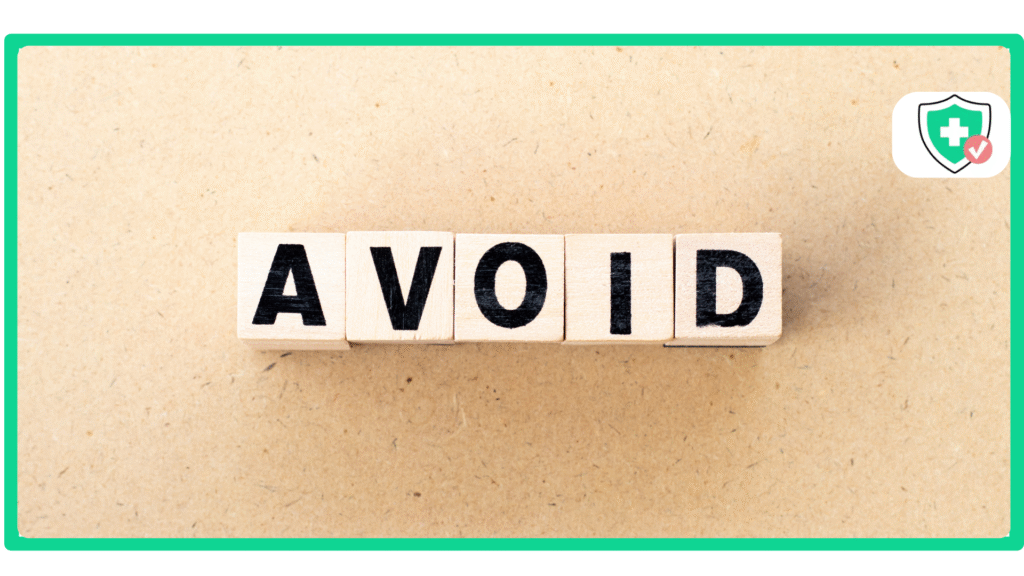Semaglutide is getting a lot of attention for helping people with weight loss. Many find it very helpful. But, even though it’s a great tool, it isn’t the right choice for everyone. This guide is here to help you understand who should not take semaglutide. Knowing if this medicine is safe for you is the most important step. It’s the best way to start a journey toward safe and effective weight loss.
Understanding Semaglutide and Its Mechanism
So, what exactly is Semaglutide? Think of it as a helper that works like a natural hormone in your body. This hormone tells your brain that you are full.
It also slows down how quickly food leaves your stomach. This makes you feel full for a longer time, so you eat less. Knowing how it works helps you understand why it might not be safe for people with certain health problems.
Absolute Contraindications: Individuals Who Must Avoid Semaglutide
Some people should never take Semaglutide. This is because it could cause very serious health issues for them. We call these “absolute contraindications.”
Let’s look at the specific reasons why someone must avoid this medication. It’s very important to be honest about your health history with a doctor.
Personal or Family History of Medullary Thyroid Carcinoma (MTC)
If you or anyone in your family has ever had a type of thyroid cancer called Medullary Thyroid Carcinoma (MTC), you should not take Semaglutide. Studies in animals showed that Semaglutide could cause thyroid tumors.
Because of this risk, the FDA has a special “black box warning” for it. This is the most serious type of warning. Your safety is always the first priority.
Multiple Endocrine Neoplasia Syndrome Type 2 (MEN 2)
Another serious condition to consider is MEN 2. This is a rare genetic problem that makes you more likely to get MTC and other tumors.
If you have MEN 2, taking Semaglutide is not safe. The risk is just too high, so it is a definite “no.”
History of Pancreatitis
The pancreas is a small organ that helps you digest food. Pancreatitis is when it gets swollen and painful. Semaglutide can increase the risk of getting pancreatitis.
If you have had pancreatitis before, your risk is even higher. To be safe, you should avoid this medication and talk to your doctor about other options.
Known Allergy to Semaglutide
This might seem obvious, but it’s very important. If you are allergic to Semaglutide or any of its ingredients, you must not use it.
An allergic reaction can be very serious, causing things like trouble breathing. This is why it’s so important to talk with our team of licensed healthcare providers, who can go over your full medical history.
Pre-existing Medical Conditions Requiring Caution
Now, let’s talk about situations where you need to be extra careful. For these health issues, taking Semaglutide isn’t a definite “no,” but it requires a lot of thought and close watch by a doctor.
You and your doctor need to decide if the benefits are worth the risks.
Kidney Disease
Your kidneys are like filters for your body. If you have kidney problems, you have to be very careful with new medicines.
Semaglutide can sometimes affect how well your kidneys work. A doctor will need to check on you very closely if you have kidney disease and want to take this medicine.
Diabetic Retinopathy
Diabetic retinopathy is an eye problem that can happen to people with diabetes. It can damage the blood vessels in your eyes.
In some cases, starting Semaglutide can make this eye problem worse at first. If you have this condition, your doctor will need to monitor your eyes carefully.
Gastroparesis or Severe Gastrointestinal Issues
Gastroparesis is a condition where your stomach takes too long to empty food. Since Semaglutide also slows down your stomach, it can make this problem much worse.
If you have gastroparesis or other serious stomach issues, this medication is probably not for you. This is a key part of knowing who should not take semaglutide.
Special Populations and Other Considerations
Some groups of people need to think about other factors. This usually involves certain life stages or specific health conditions.
Pregnancy and Breastfeeding
If you are pregnant, trying to get pregnant, or breastfeeding, you should not take Semaglutide. There is not enough research to know if it is safe for the baby. It’s always best to be safe and wait.
Type 1 Diabetes
Semaglutide is often used by people with Type 2 diabetes, but it is not for people with Type 1 diabetes. Type 1 diabetes is a different condition that needs to be treated with insulin. Semaglutide is not a replacement for insulin.
The Importance of a Professional Medical Consultation
Deciding to take a new medicine is a big step. You should never do it on your own. Talking to a doctor is the only way to know for sure if Semaglutide is safe for you.
A real doctor will look at your health history and help you make the best choice. This is how you find out if you are in the group of who should not take semaglutide.
Note: A great medical consultation means you get a plan that’s just for you. For people who are good candidates, our program offers a simple and supportive way forward. Our plan gives you the prescription and medicine with free delivery to your home, all for $299 a month. This way, you can focus on your health without worrying about surprise costs.
Conclusion
Semaglutide is helping many people reach their weight loss goals. But it is not a magic pill, and it’s not for everyone. Safety must always be number one.
Knowing the risks is just as important as knowing the benefits. It helps you make a smart choice for your body and your health. Remember, understanding who should not take semaglutide is the first step to a healthier you.
Ready to see if Semaglutide is right for you? Book your free online consultation today to speak with one of our licensed providers and take the first safe step on your weight loss journey. You can also check our patient portal for more information.
Sources:
- FDA Semaglutide Prescription Information: https://www.accessdata.fda.gov/drugsatfda_docs/label/2017/209637lbl.pdf
- National Institute of Diabetes and Digestive and Kidney Diseases (NIDDK) – Weight Management: https://www.niddk.nih.gov/health-information/weight-management
- American Thyroid Association – Medullary Thyroid Cancer Information: https://www.thyroid.org/medullary-thyroid-cancer/









